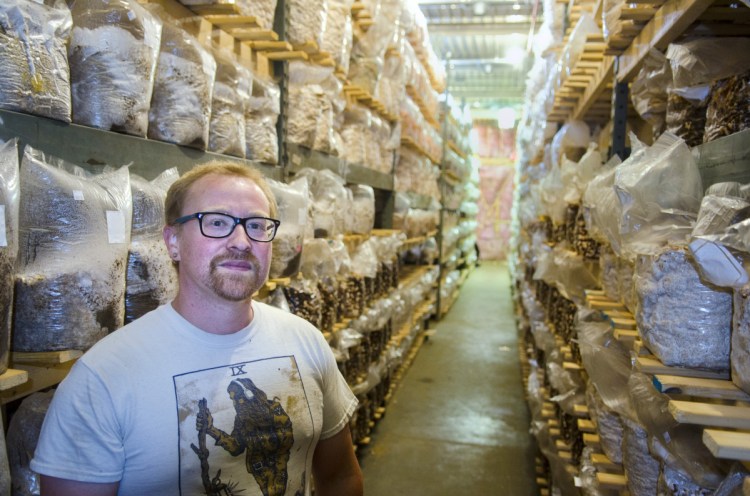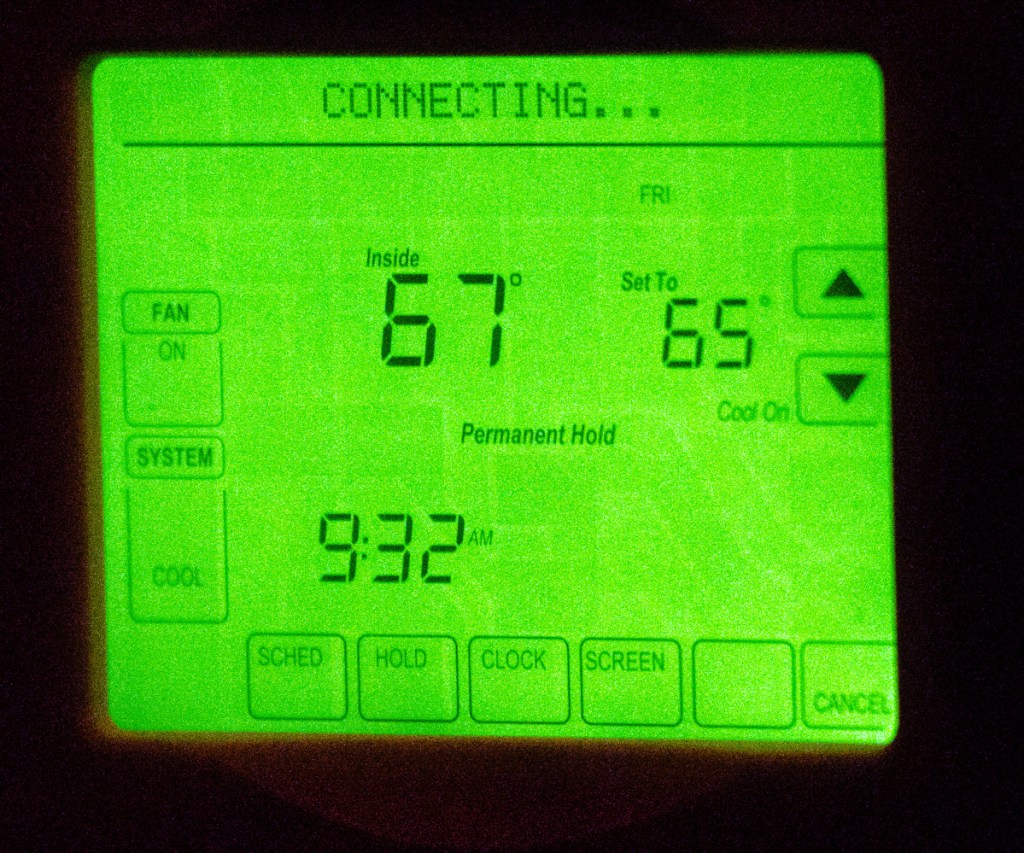Until this year, the 7.5-ton HVAC system that Maine Cap N’ Stem had was enough for its needs.
The company, which supplies organic mushroom blocks to commercial cultivators from its Gardiner facility, requires a climate-controlled environment to keep the varieties of mushrooms from developing in the company’s inoculated blocks before they are shipped.
“Because this summer has been quite unbearable, and we’ve had a fairly good production bump, we’ve added a second 7.5-ton HVAC unit,” said Mark Robinson, one of the partners at Maine Cap N’ Stem. “We have two systems going at once.”
That additional demand for power echoes what’s been seen across Maine this summer as people have been seeking relief from weather that has been hotter and steamier than normal both at home and at work. They have been buying up fans and air conditioners as fast as the stores could stock them.
Because of its forecasts, ISO New England — the not-for-profit regional transmission organization that keeps electricity moving to the six Northeastern states — has been ready.
When its 2018 Summer Outlook was published earlier this year, ISO New England predicted a warmer than average summer. With temperature at about 90 degrees, the organization estimated the peak summer demand would be 25,729 megawatts. With an extended heat wave of about 94 degrees, the extreme summer peak demand forecast was 28,129 megawatts.
“Right now the system is operating normally and reliably,” ISO New England spokesman Matthew Kakley said. “Everything is running fine right now and we have no reason to think that’s going to change.”

Bags filled with blocks of inoculated mushroom substrates line the shelves Friday in the climate-controlled growing room at Maine Cap N’ Stem Mushroom Co. in Gardiner.
In Gardiner, the weather has been just one of a number of factors the partners at Maine Cap N’ Stem have to manage.
“It’s all tied together,” Robinson said. “We probably would have been fine with the production, but the humidity maxed out the (heating ventilation and air conditioning) system. It has to remove the humidity from the air before it can cool it.”
The ideal ambient temperature for the operation is about 65 degrees, he said. To keep the mushroom blocks from fruiting, they don’t want the internal temperature to rise above 70 degrees.
Keeping the temperature steady is fairly simple with the right equipment in place.
“Once the HVAC system is up and running, you can set it and forget it,” he said.
While the supply of power is secure, the additional use, both at home and at businesses, could lead to higher bills.
“I am expecting quite a bill,” Mitch Tannenbaum, general counsel for the Maine Public Utilities Commission, said. He has dogs at home and has been running the air conditioning to keep them cool during this summer’s hot spells.
“I have been running it quite a bit,” he said.
The Public Utilities Commission is the state regulator that oversees utilities, including power companies like Central Maine Power Co., to ensure they provide safe, adequate and reliable service at rates that are just and reliable for utilities and consumers alike.

To keep its growing room cool this summer, Maine Cap N’ Stem Mushroom Co. in Gardiner has rented an extra climate-control system, on trailer at left, to supplement the regular one, center, on Friday at. A backup generator is at bottom right.
A number of factors affect what residents and businesses pay to keep the lights on and the air cool. One of those factors is the wholesale cost of power.
“The wholesale market prices are high lately,” Tannenbaum said.
Because businesses have contracts and residents have signed up for the standard offer, they will pay a fixed rate for power, no matter what the wholesale cost of the power is.
“You may be using more kilowatt hours. The price is the same; you are just using more of them,”
CMP could not immediately supply data about power usage in the region.
Because power is a critical component to the company’s business, Maine Cap N’ Stem also has invested in a generator for its original HVAC system.
“We’ve been having some power outages,” Robinson said. “For an hour, it’s OK. During the windstorm last year, we had a two- to three-day outage. That was pretty bad. We had some crop loss.”
While the company has controlled all the factors that it can, it can’t control the weather.
“I have seen reports that say (electric) supply is no problem,” Robinson said. “Obviously, I am worried about (bill) increases. That will (hurt) the bottom line.”
Jessica Lowell — 621-5632
Twitter: @JLowellKJ
Send questions/comments to the editors.




Comments are no longer available on this story